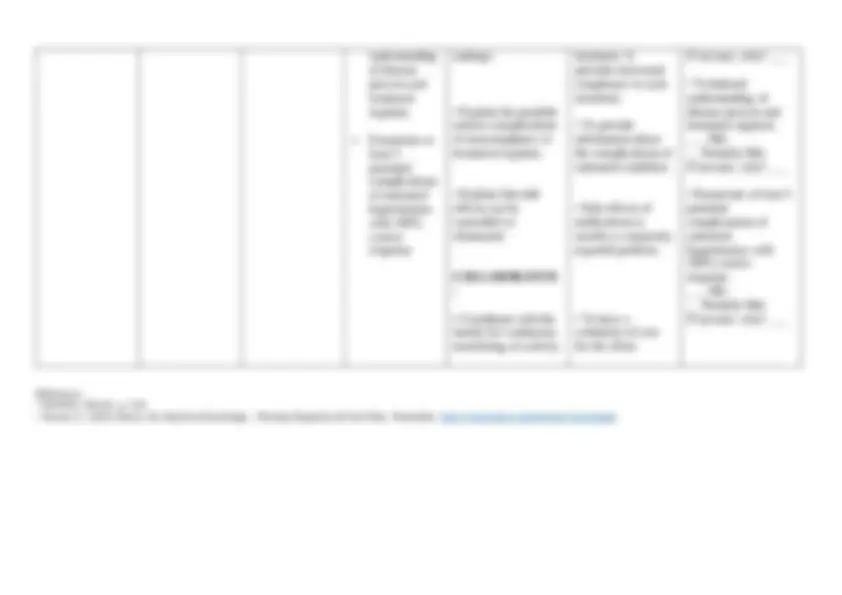



Study with the several resources on Docsity

Earn points by helping other students or get them with a premium plan


Prepare for your exams
Study with the several resources on Docsity

Earn points to download
Earn points by helping other students or get them with a premium plan
Community
Ask the community for help and clear up your study doubts
Discover the best universities in your country according to Docsity users
Free resources
Download our free guides on studying techniques, anxiety management strategies, and thesis advice from Docsity tutors
Knowledge deficit regarding condition, therapeutic regimen and potential complication R/T misinterpretation of information
Typology: Assignments

Limited-time offer
Uploaded on 04/08/2021
4.7
(7)5 documents
1 / 2

This page cannot be seen from the preview
Don't miss anything!



On special offer
Cues Nursing Diagnosis Analysis Goals & Objectives Interventions Rationale Evaluation Subjective: Patient verbalized, “Hininto ko ang pag-inom ng amlodipine baka masira ang atay ko.” Objective: Verbalization of inaccurate information No available medicine (amlodipine) for health maintenance. BP: 140/ mm Hg Knowledge deficit regarding condition, therapeutic regimen and potential complication R/T misinterpretation of information AEB verbalization of inaccurate information and noncompliance Deficient knowledge regarding condition and treatment R/T misinterpretation of information AEB verbalization of inaccurate information Deficient knowledge is a state wherein the cognitive information and/or psychomotor skills required for health recovery, maintenance, or health promotion are lacking. The inability to perceive the importance of adhering to the therapeutic regimen that is appropriate for the client resulted from misinterpretation of information regarding treatment may increase the client’s risk for potential complications. Long Term: After all the nursing interventions, the client and family members will be able to demonstrate and initiate necessary lifestyle changes and participate in treatment regimen. Short Term: » After 20 minutes of nursing interventions, the client and family will be able to: » Participate in the learning process. » Verbalize
understanding of disease process and treatment regimen. » Enumerate at least 5 potential complications of untreated hypertension with 100% correct response. undergo.